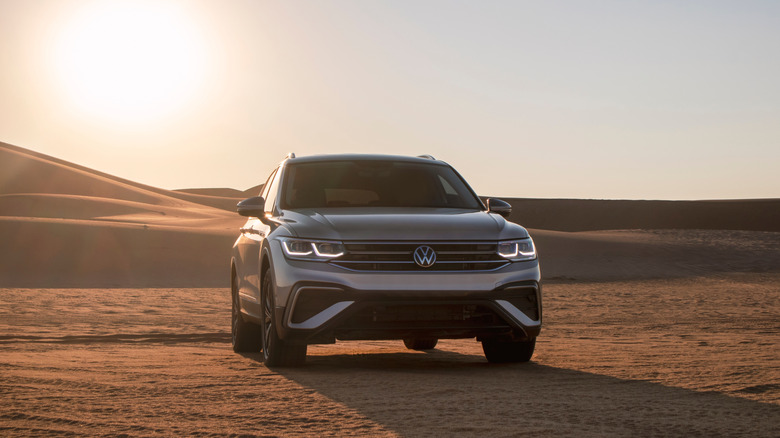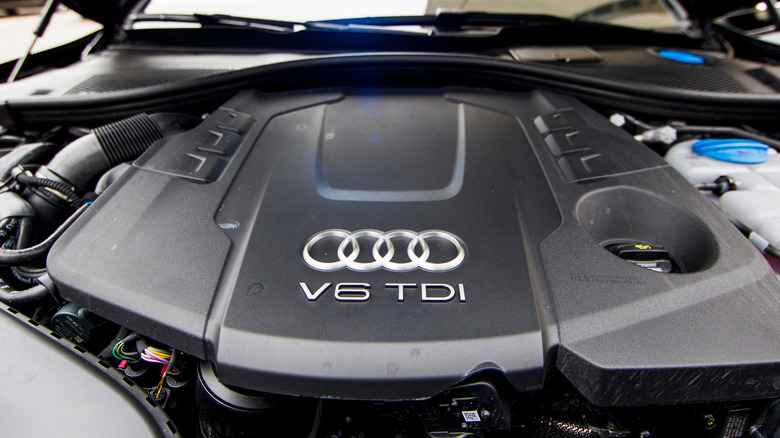There Are Volkswagen & Audi Cars Abandoned In The Mojave Desert - And Here's Why
While the Mojave Desert's sunbaked vistas are sure to present visitors with all manner of surprises, there may be one sight in the Mojave that's a bit more surprising than any windblown dune or majestic Joshua Tree. There are, after all, hundreds of thousands of automobiles occupying what has now become one of the world's largest parking lots out in that very desert.
More specifically, there are about 350,000 Audi and Volkswagen-branded automobiles currently sitting in a lot in the Mojave. That parking lot might also better be described as a graveyard, as the vehicles have been collecting dust there for the better part of the past decade or so. It seems that the various models of VW and Audi — brands that are both currently owned by The Volkswagen Group – are doomed to reside in their Mojave graveyard for the foreseeable future, as the automakers are not legally permitted to sell them in the United States or any other market in the world.
In fact, The Volkswagen Group has paid for most of those vehicles twice. Many were delivered there after the company was ordered to buy them back as part of the settlement from the infamous "Dieselgate" emissions scandal. The Mojave was selected largely because the arid desert atmosphere would theoretically prevent the vehicles from rusting away to nothingness. And today, the location is commonly referred to as The "Dieselgate" Graveyard.
What to know bout the Dieselgate scandal
As it happens, the 134-acre "Dieselgate" Graveyard in Victorville, California is not the only location in the world where The Volkswagen Group is storing its rejects, with the automaker having hosted the buy-backs at some 37 locations over the years. According to 2018 court filings, the German auto firm had then spent some $7.4 billion to bring the vehicles back into the fold. That number may not cover the money TVG spent to bring other vehicles up to code for owners who preferred that option over the court-ordered buy backs.
While Audi and Volkswagen provide dramatically different driving experiences, the popular German brands have been sharing engines for years now. That is precisely why the more luxury and performance-minded Audis were roped into the "Dieselgate" fray. If you're not familiar with that scandal, it resulted from the 2015 discovery that Volkswagen — then one of the world's leaders in the manufacture of consumer diesel vehicles — had been lying about the emissions capabilities of its diesel line.
Even more problematic than that was the news that the company had even outfitted diesel-powered VWs and Audis with "defeat devices," a special software that is designed to cheat emissions tests into showing a passing level even when the actual levels are too high. The blowback against VW was significant to say the least, with the manufacturer forced to take extreme measures to make things right with both its customer base and the Environmental Protection Agency. Either way, it does not appear that TVG has any plans for the 300,000-plus cars wasting away in the Mojave Desert.

